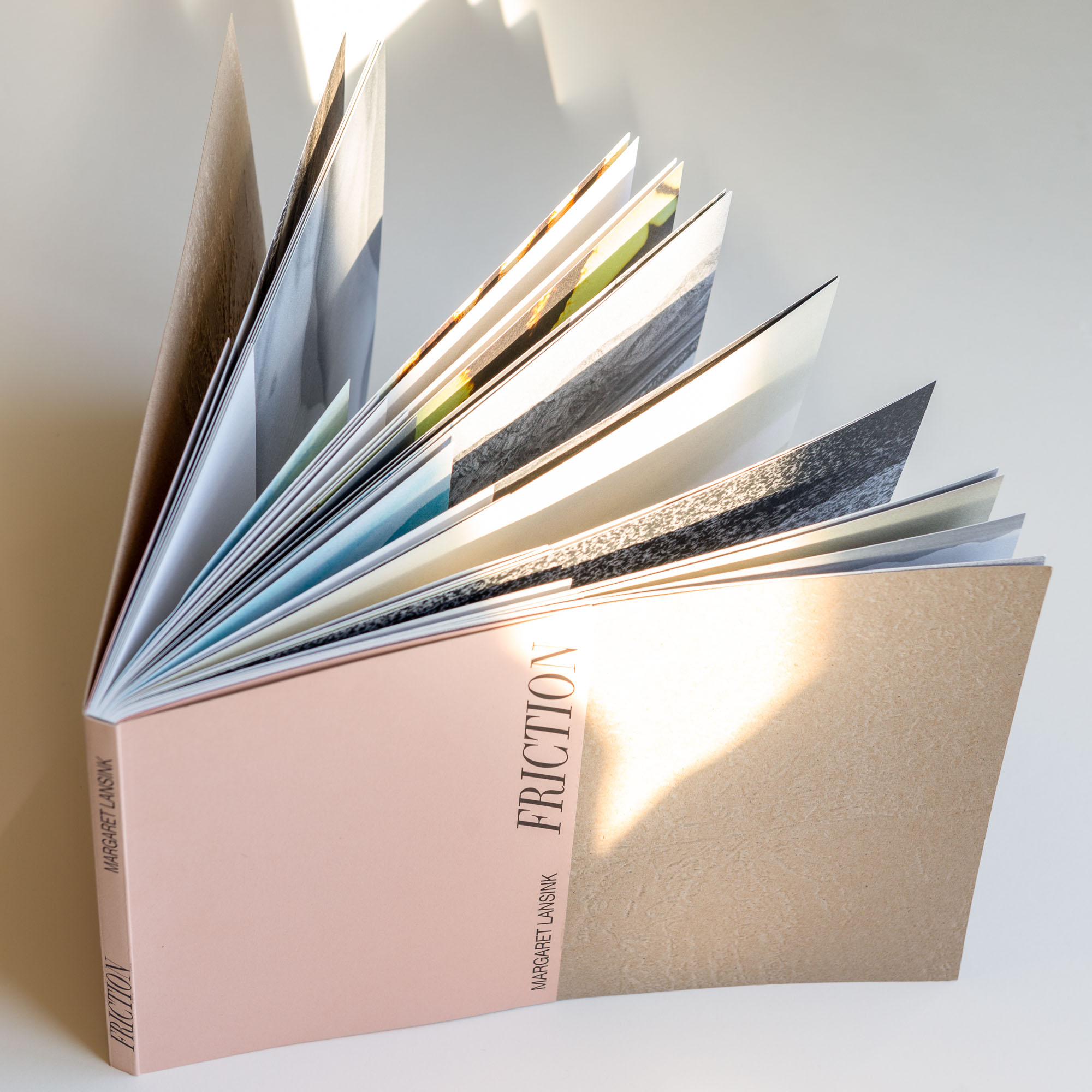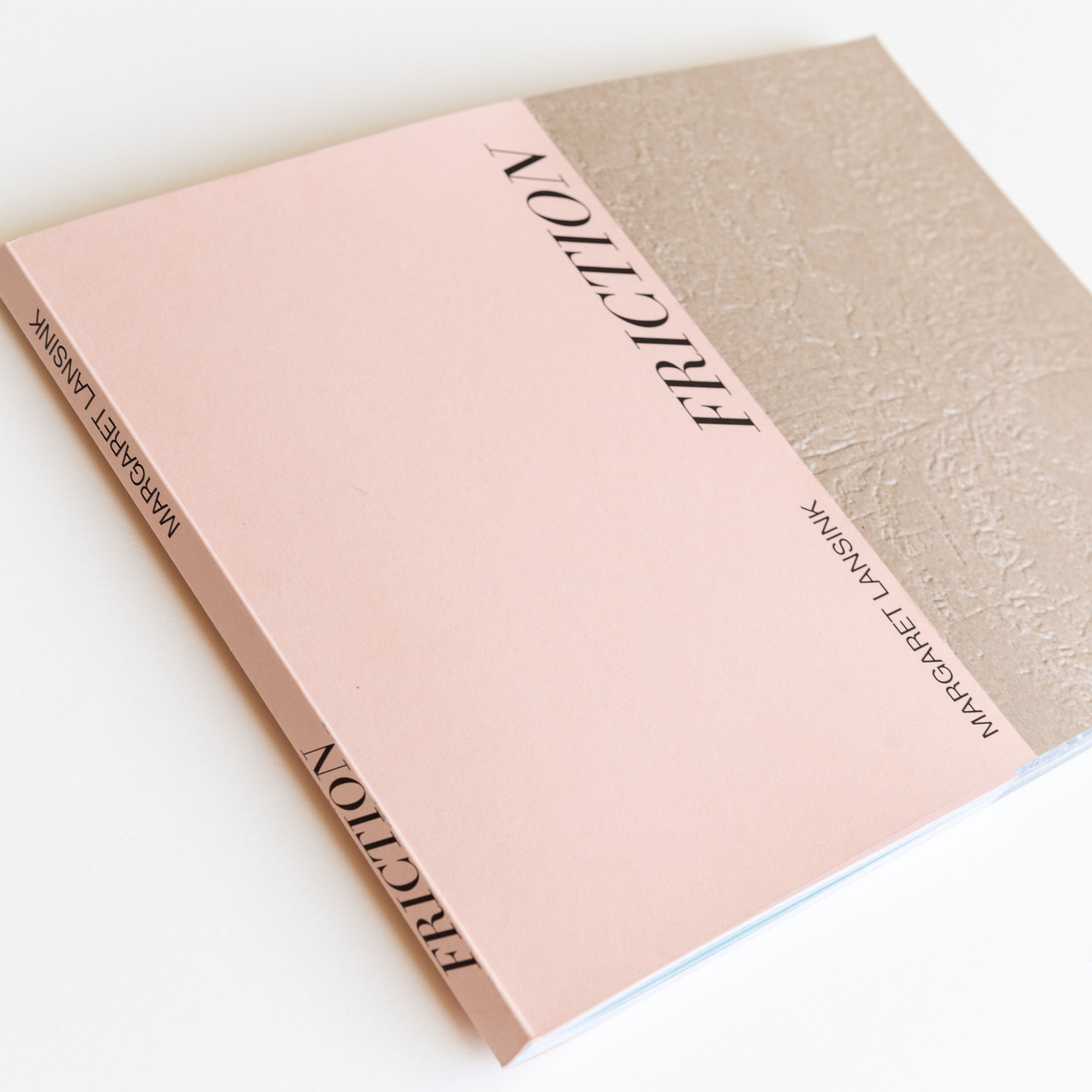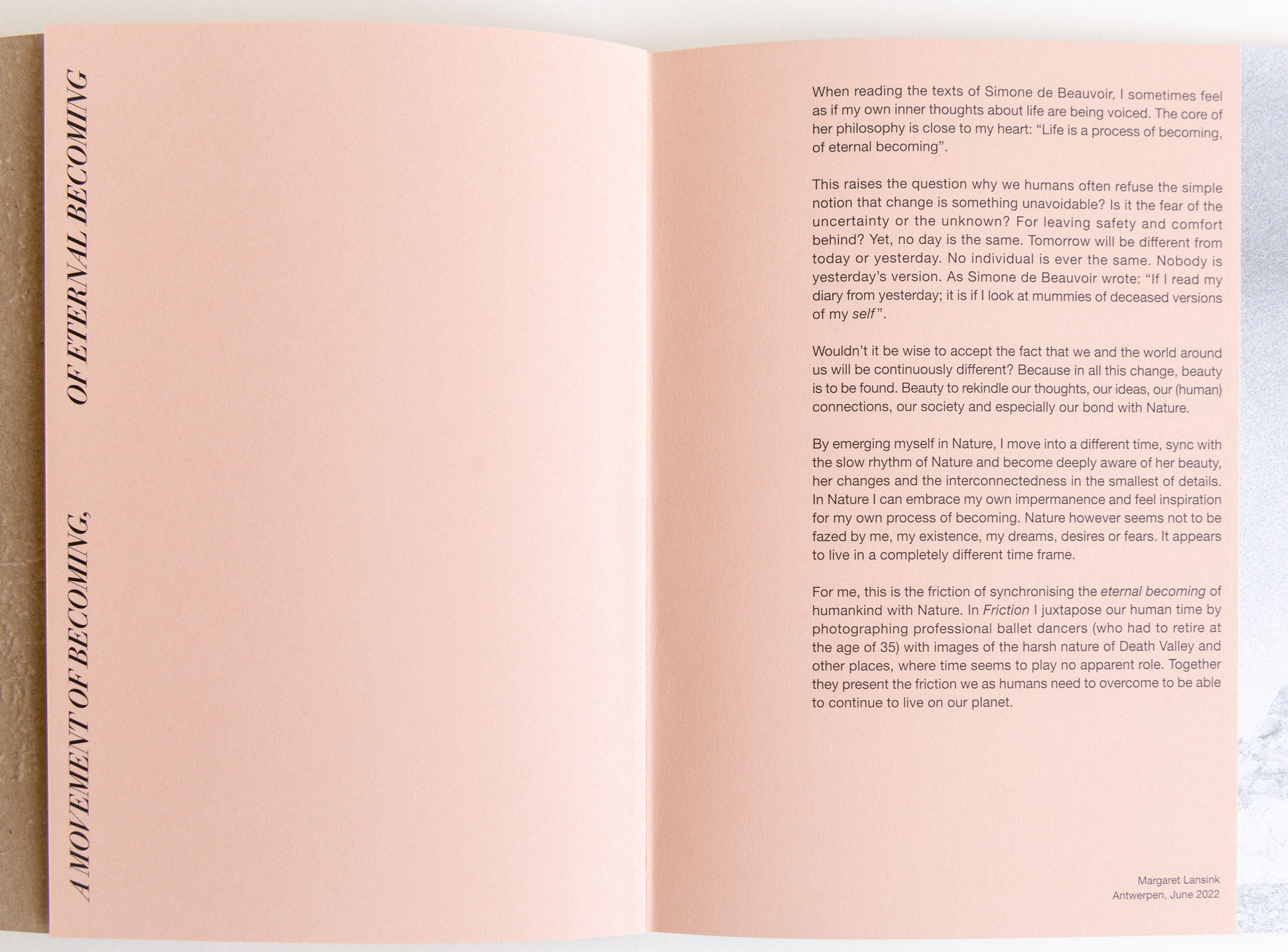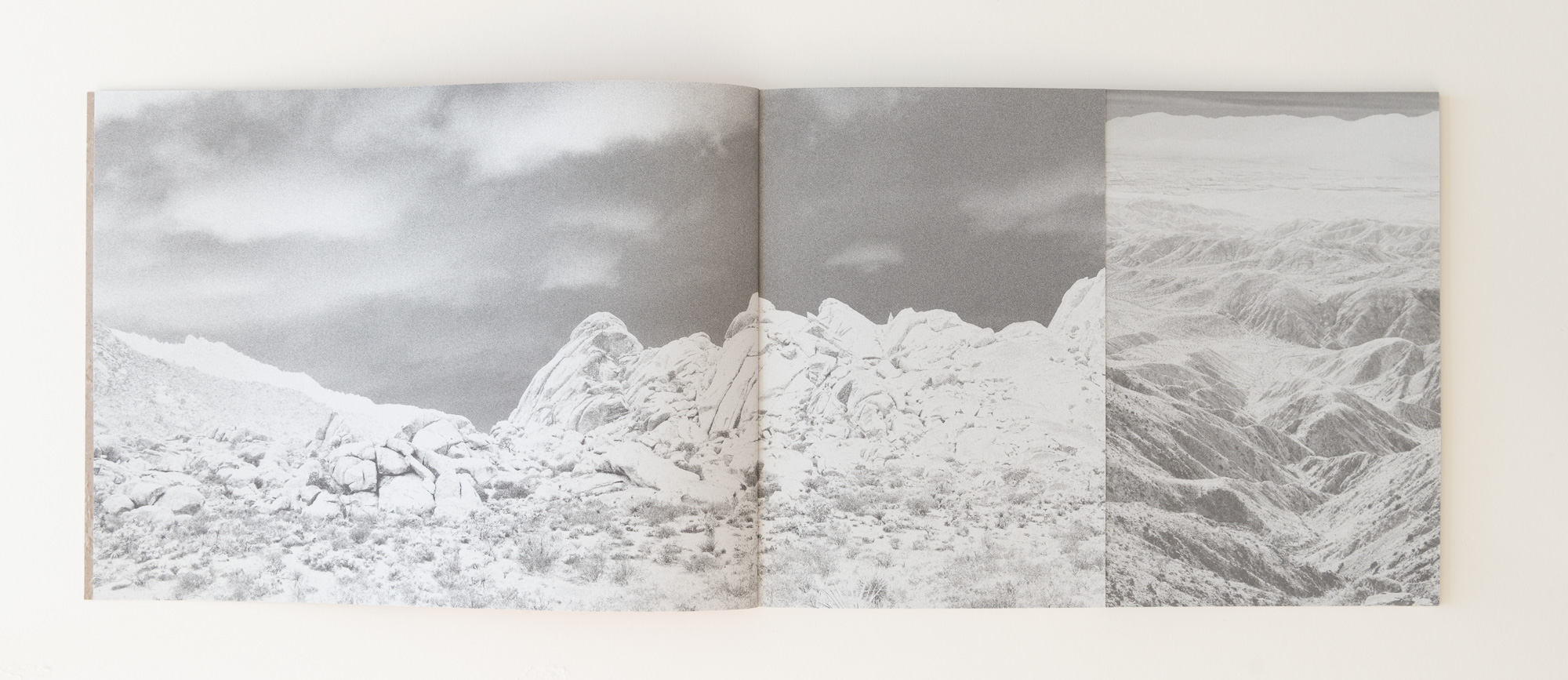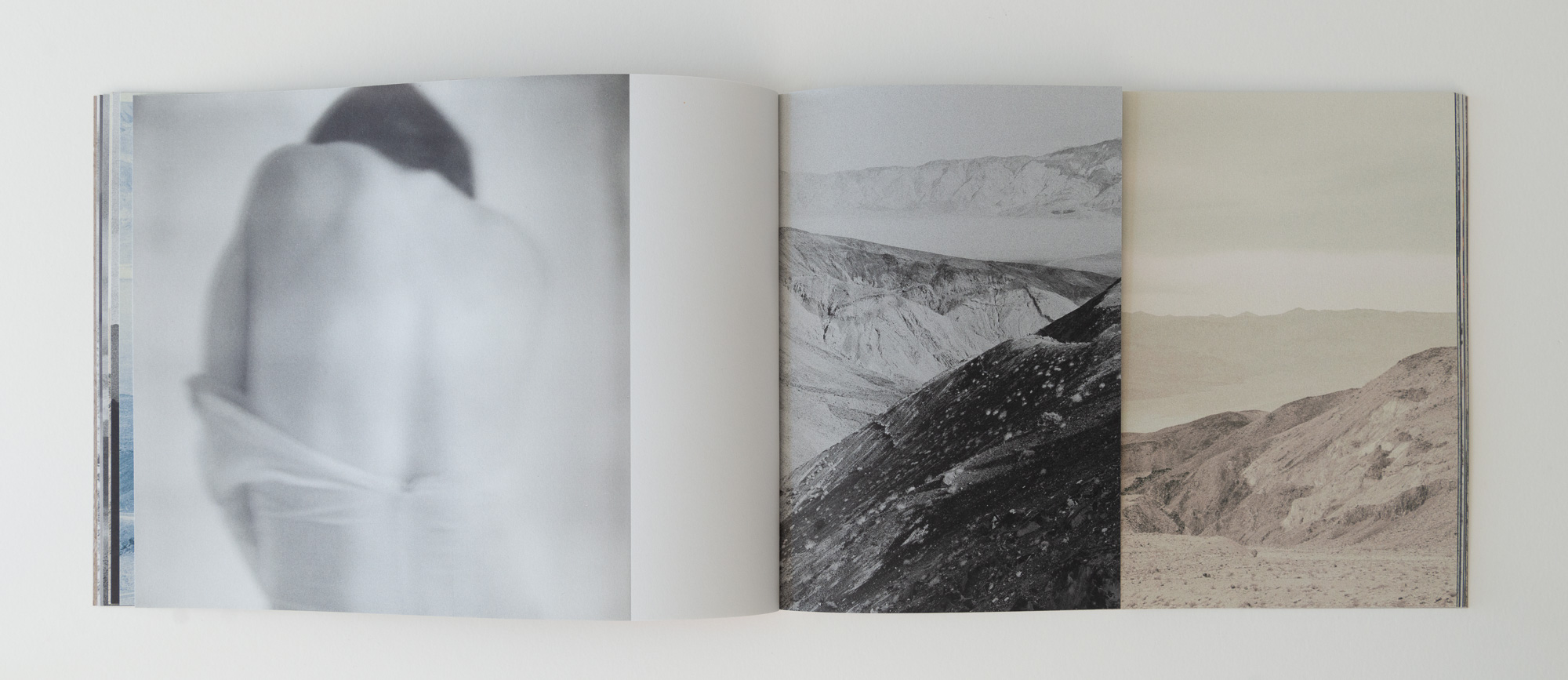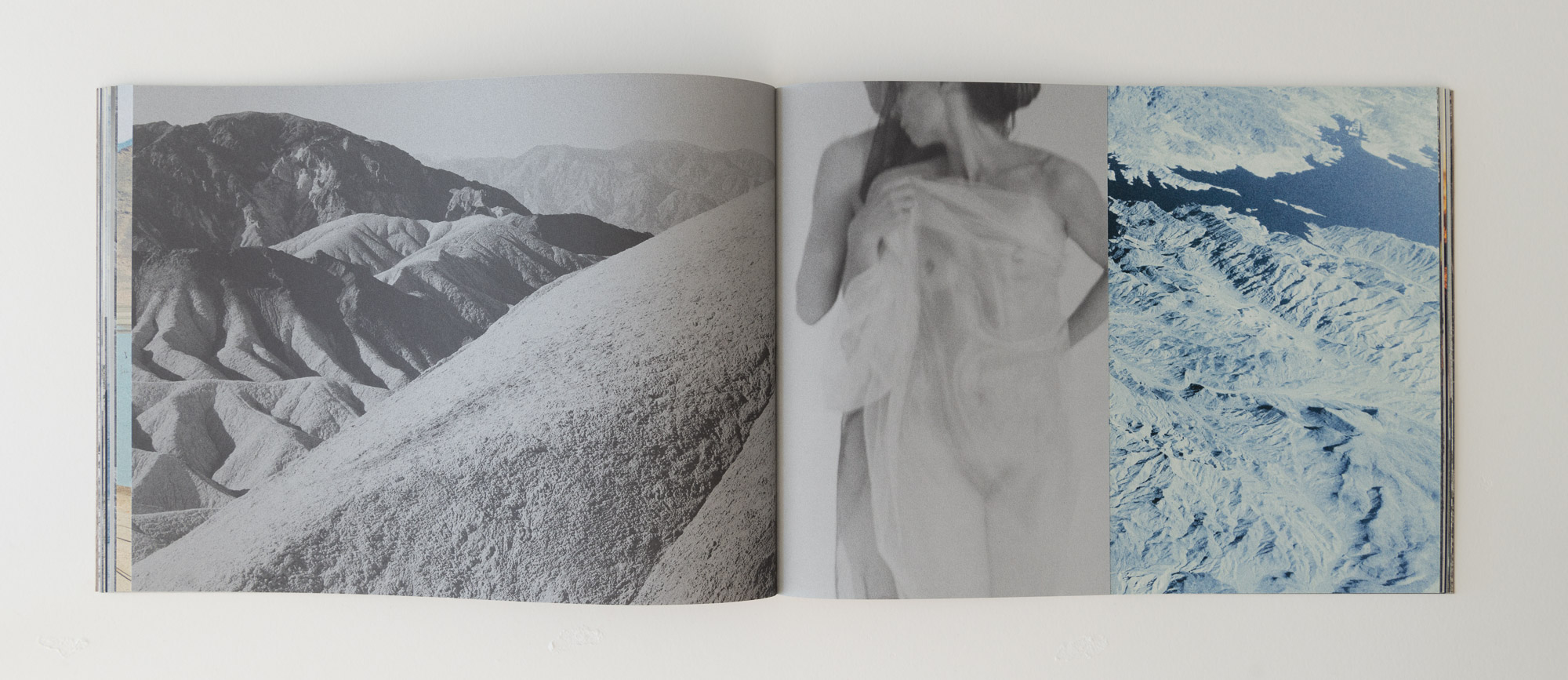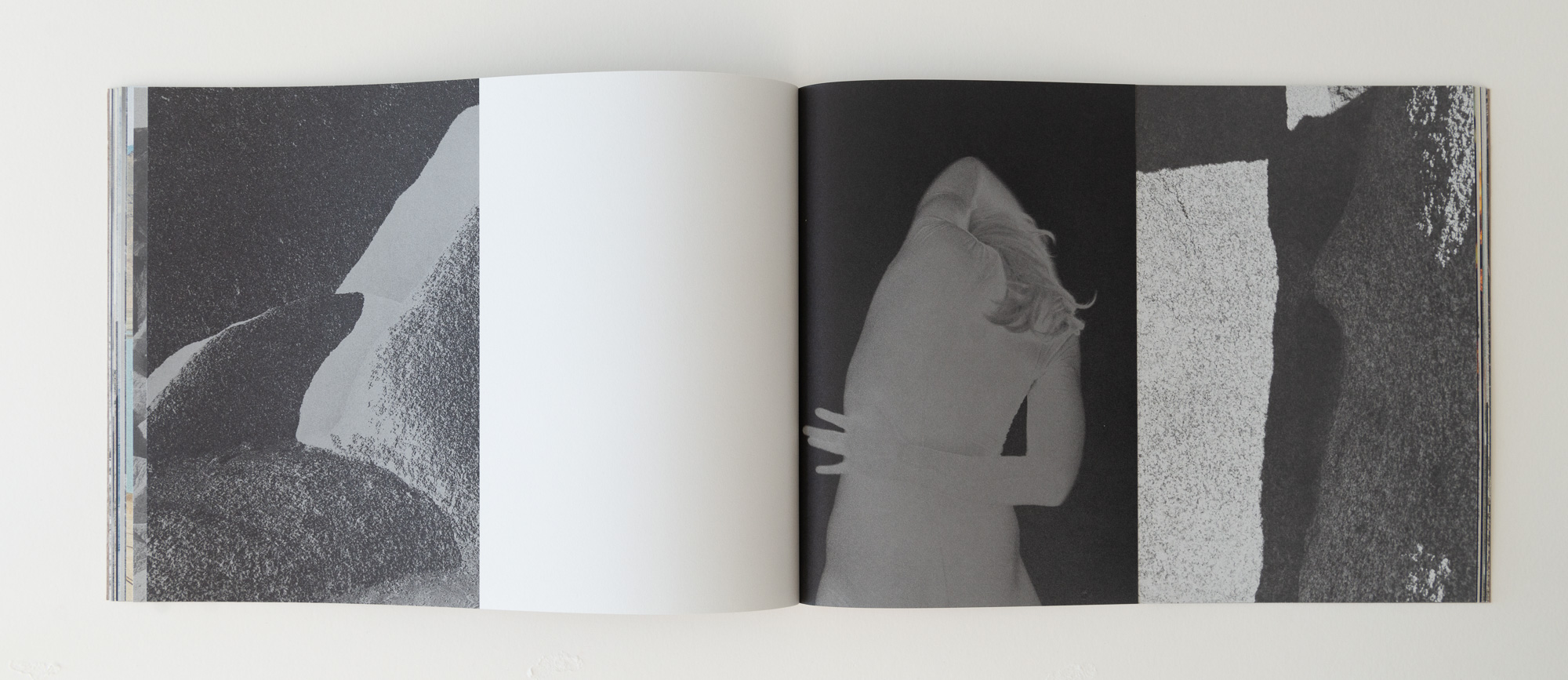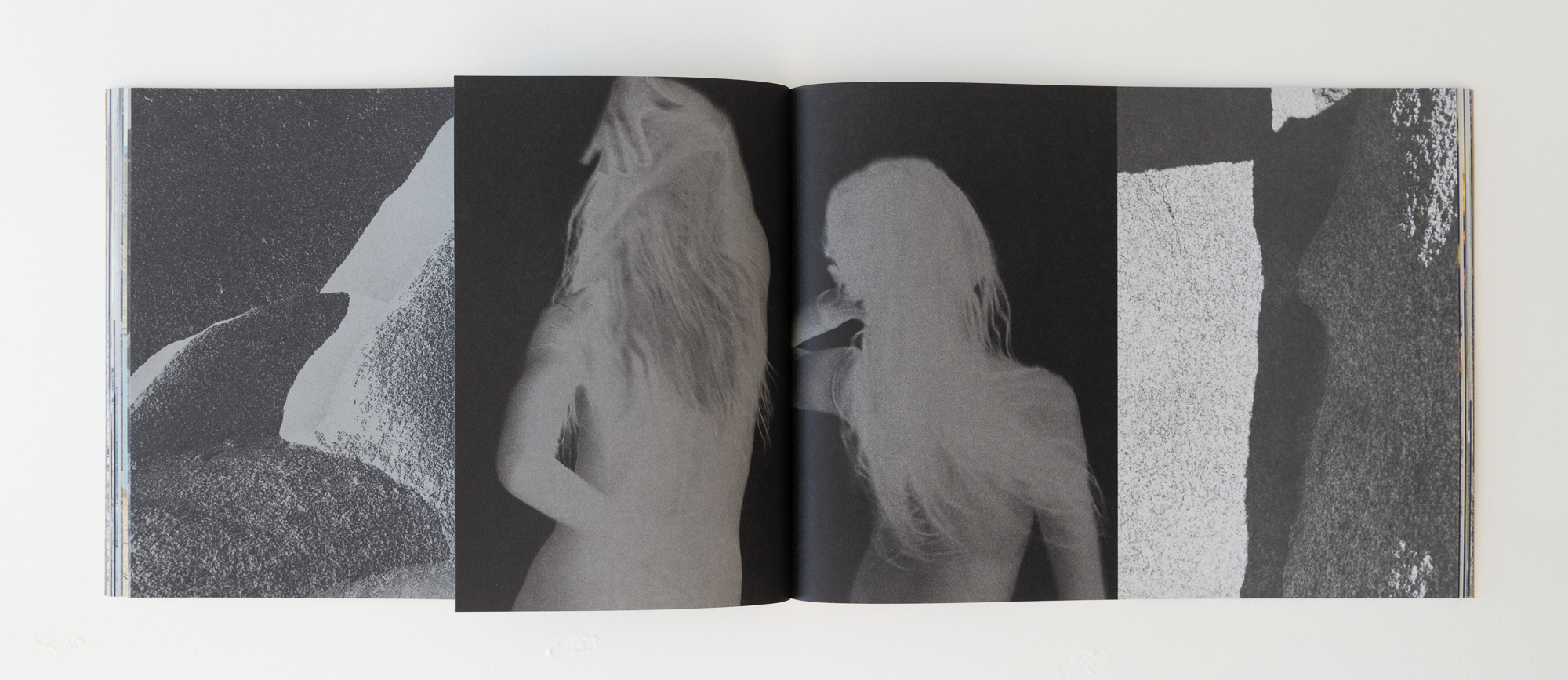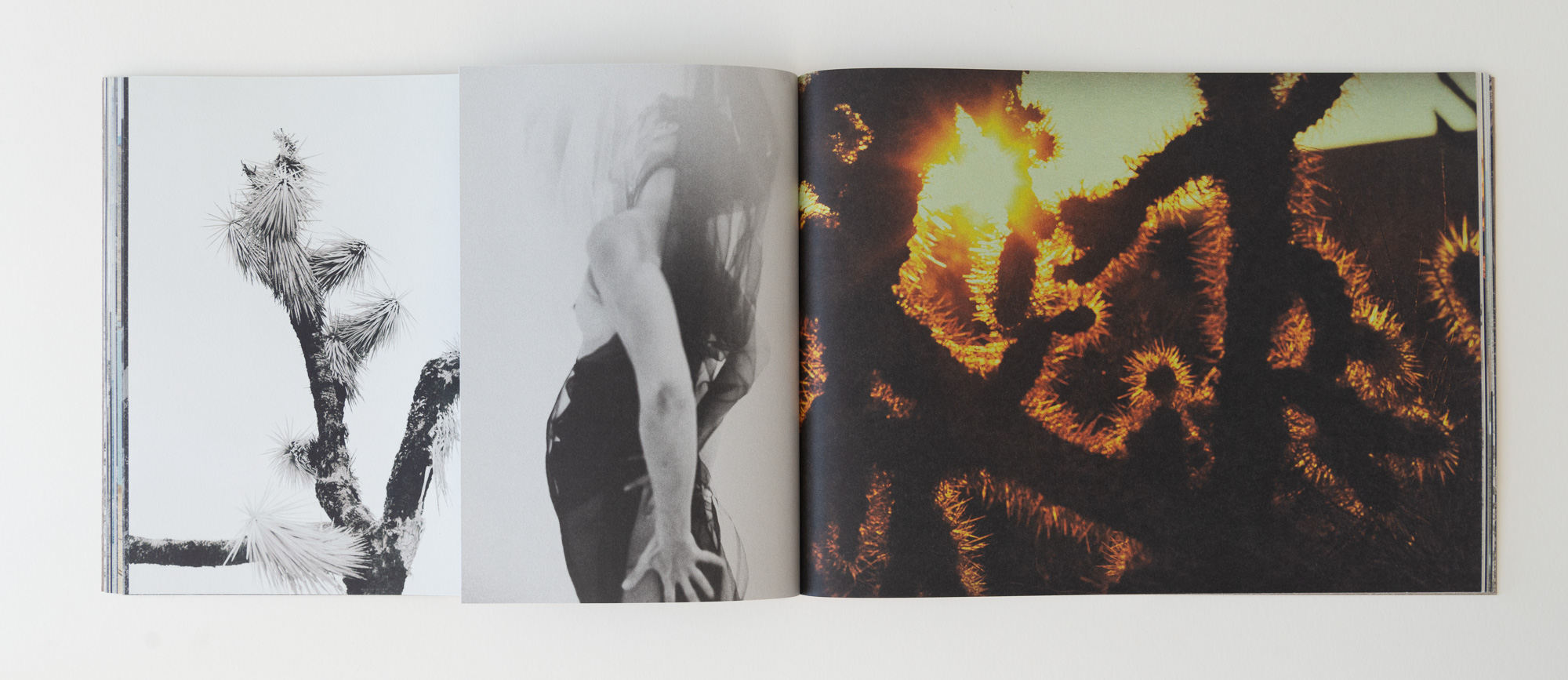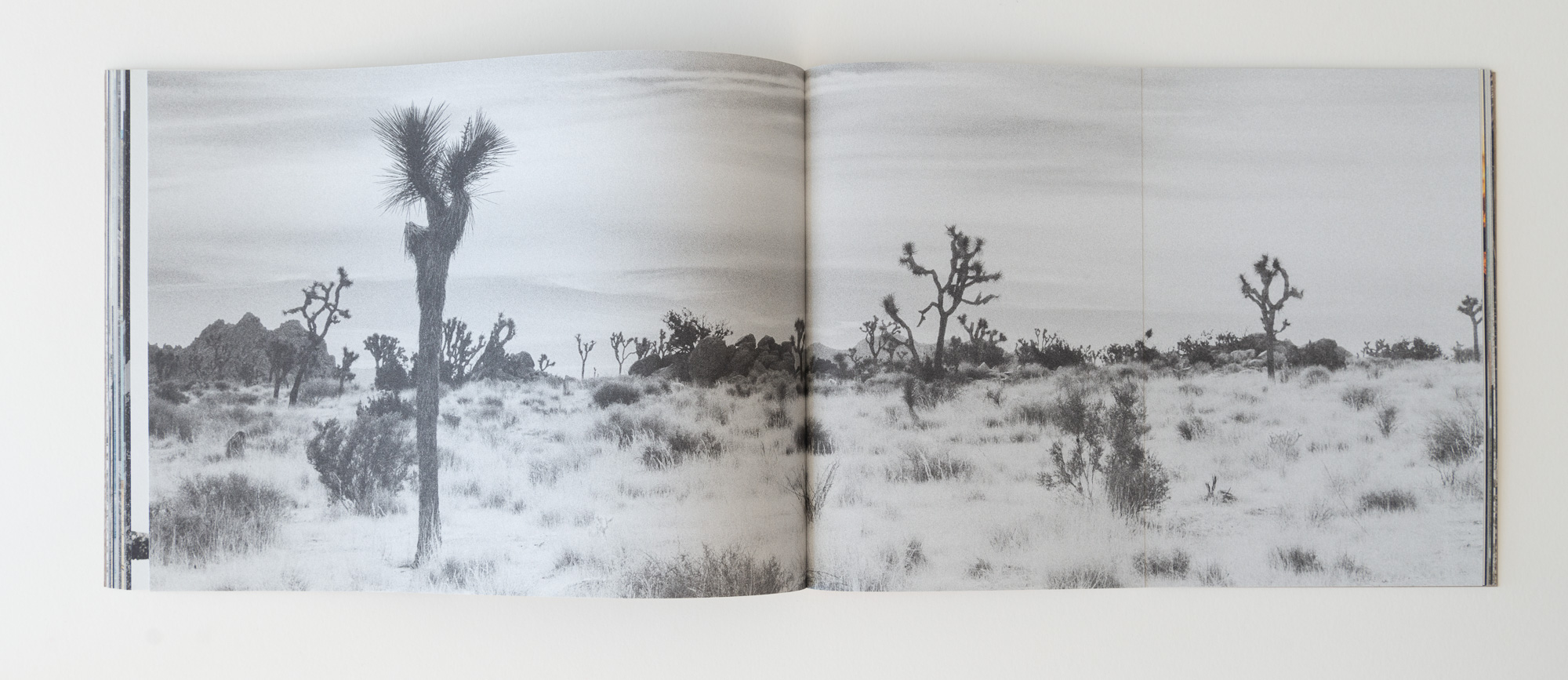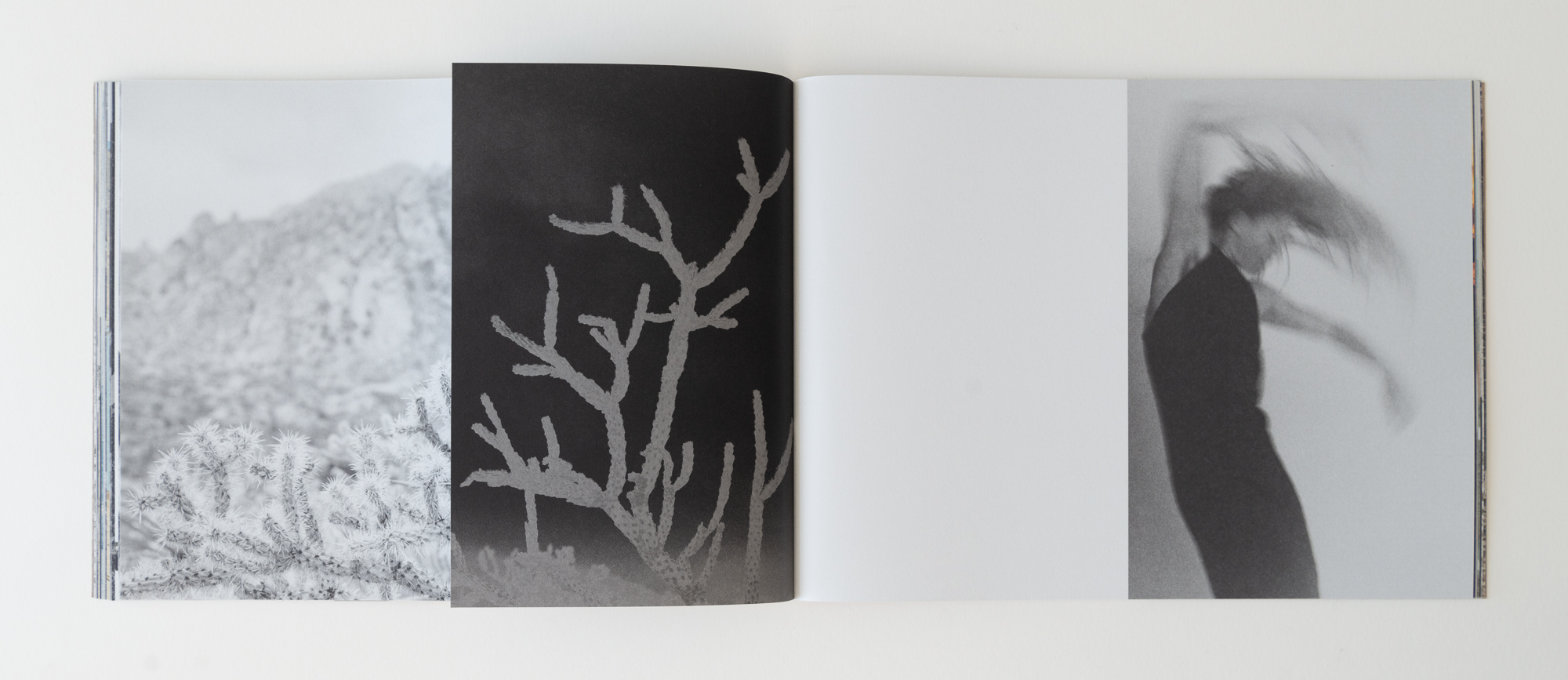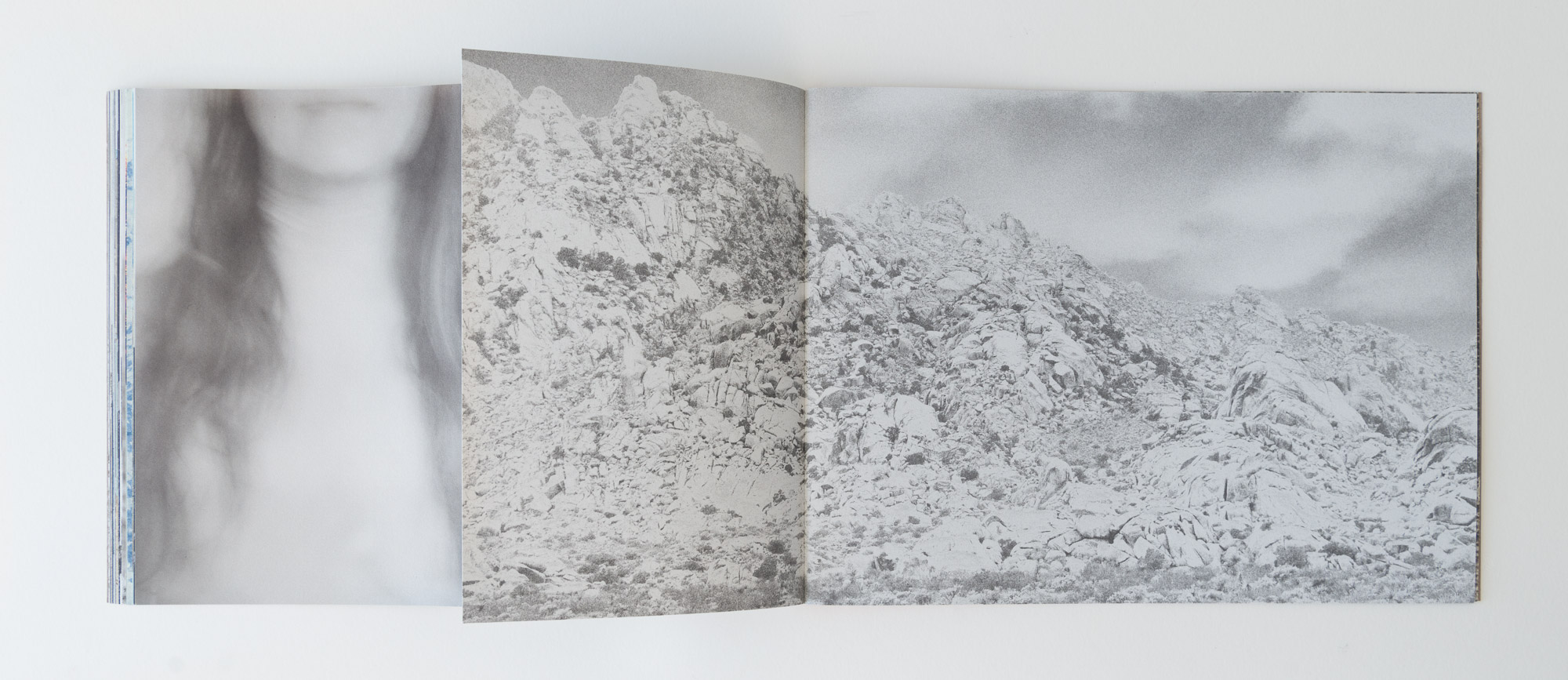FRICTION
A movement of becoming, of eternal becoming
When reading the texts of Simone de Beauvoir, I sometimes feel as if my own inner thoughts about life are being voiced.
The core of her philosophy is close to my heart: ‘Life is a process of becoming, of eternal becoming’.
This raises the question why we humans often refuse the simple notion that change is something unavoidable?
Is it the fear of the uncertainty or the unknown? For leaving safety and comfort behind? Yet, no day is the same.
Tomorrow will be different from today or yesterday. No individual is ever the same. Nobody is yesterday’s version.
As Simone de Beauvoir wrote: ‘If I read my diary from yesterday; it is if I look at mummies of deceased versions of my ‘self`’.
Wouldn’t it be wise to accept the fact that we and the world around us will be continuously different?
Because in all this change, beauty is to be found. Beauty to rekindle our thoughts, our ideas, our (human) connections,
our society and especially our bond with Nature.
By emerging myself in Nature, I move into a different time, sync with the slow rhythm of Nature and become deeply aware
of her beauty, her changes and the interconnectedness in the smallest of details. In Nature I can embrace my own impermanence
and feel inspiration for my own process of becoming. Nature however seems not to be fazed by me, my existence, my dreams, desires or fears.
It appears to live in a completely different time frame.
For me, this is the friction of synchronising the eternal becoming of humankind with Nature.
In Friction I juxtapose our human time by photographing professional ballet dancers (who had to retire at the age of 35)
with images of the harsh nature of Death Valley and other places, where time seems to play no apparent role.
Together they present the friction we as humans need to overcome to be able to continue to live on our planet.
Epilogue
Another reason for using the texts of Simone de Beauvoir is that she is regarded as a feminist.
Because next to the friction I see between humans and Nature, there is also the friction between men and women that concerns me.
As Simone de Beauvoir said: ‘One is not born, but rather becomes, a woman’.
This feeling of inequality is still present in our society. It is something that is more subtly woven through my story as I have tried
to present female sensitivity as a strength. A strength that might prove to be crucial in successfully bridging the friction
between humankind and Nature.
YOU CAN ALSO TAKE A LOOK AT THE SERIES ‘FRICTION’ ITSELF, IF YOU’D LIKE
Softcover
Publisher: IBASHO&the(M)éditions
Dimensions: 23.4 x 31.2 cm
Pages: 90
ISBN: 979-10-95424-36-9
Price: € 85,= excl. shippingcosts
